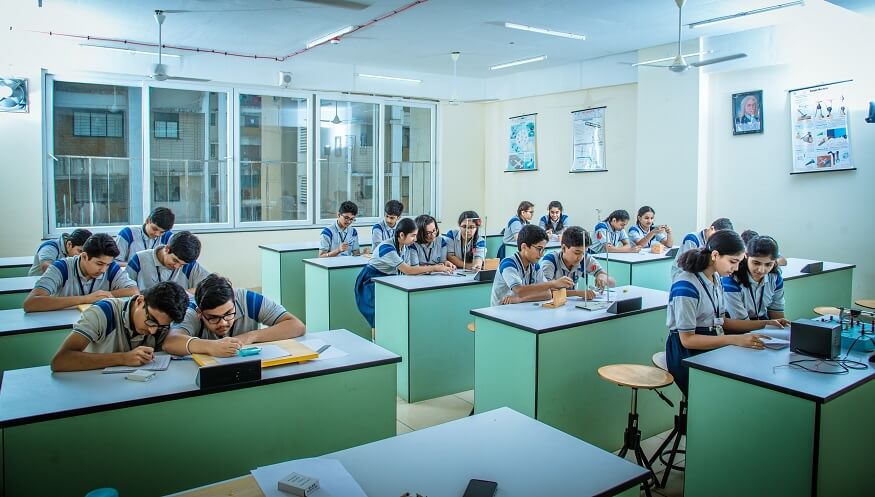What are international schools?
With increasing globalisation and broadening international collaboration and relationships, it has become commonplace for foreign nationals to reside in India for governmental work, business, or pleasure. What happens to children and their education when their parents travel across continents for work? This is where international school programs come to their rescue and provide a seamless transition of their children’s education no matter which part of the world they are in. This was the basic premise for the inception of international schools in India and the international curriculum the world over.
Among the many benefits of international schools, the most important was to be able to serve foreign nationals while maintaining a sense of continuity in their children’s education. However, the quality of education offered by international schools opened up demand for international school programs even from the local citizens. International schools are typically positioned as premium category schools with relatively high tuition fees not affordable to all. This also results in a sense of elitism amongst students of international schools. The key question parents ask is if the quality of education they provide is proportionate to the significantly high fees they charge. In short, the answer is yes, but with a condition.
Also Read: Importance of International Schools and reasons to enrol your Children
Different International School education Programs
International school education follows international curricula such as International Baccalaureate (IB), Cambridge International Examinations (CIE), International Primary Curriculum, or International General Certificate of Secondary Education. These schools also need to be accredited by the Council of British International Schools or the Council of International Schools. These are globally acclaimed bodies which ensure the quality of their curriculum.
The international school education curriculum is designed by global academic experts keeping a global outlook in mind. The primary objective is to provide rich exposure to students to develop them into global citizens. There is no doubt that the global education system is much more advanced when compared to the Indian education system. While the NEP and other initiatives are a step in the right direction, we have to concede that we are still far behind the level of international curriculums currently.
The international boards do a commendable job of keeping pace with the evolving changes and including it in their curriculum ensuring the students are well prepared to face the vagaries of the real world. On the other hand, the slow-moving national/state board curriculum leads to frequent outdated and obsolescence of the education being imparted to young evolving minds. This lag leads to students who turn out to be poorly prepared for the world and unemployable in the demanding corporate world.
The Indian curriculum from state boards, CBSE or ISC/ICSE boards does a decent job of focusing on the holistic development of students. It still falls short in developing them as global citizens as Indian boards have a significant Indian touch to the curriculum. The importance of international education is highlighted all the more when it comes to working in a global context. The international curriculum comes across to be much more advanced when compared to the Indian curriculum set in the Indian context. The global curriculum also enhances the global acceptance of students coming from international schools. The quality of education opens up avenues for students to pursue their higher studies in reputed foreign universities.
Along with a global curriculum, international schools are home to a rich and diverse set of students coming from across the world. This adds richness to the exposure children get by engaging with their classmates and understanding the diverse cultures and folklore of their respective countries. Children, as a result, develop as truly global citizens with a global perspective. A global focus in the international school education, might also sometimes lead to ignoring the regional Indian context among international school students. This is where EuroSchool brings in the glocal approach of balancing the global with a fine blend of local perspectives for our students.
Along with the diversity of culture, international school students are also exposed to a wide variety of curricular and extracurricular activities. This exposure broadens their thinking horizons and makes a significant contribution to the holistic development of their mind, body, and soul.
English is the mandatory language in international school education. While this might be true for many other English medium schools, the enforcement however makes a significant difference. Fluency in English is critical to career progression in today’s world. Being fluent in English puts international school students at a firm advantage as compared to many of their peers who come from state boards and other regional schools where English speaking is not enforced strictly.
Also Read: 8 Questions to Ask When Looking at International Schools
Benefits of International School education
International schools are also known to have significantly lower student-to-teacher ratios. This is one of the significant benefits of international schools over most other schools where classrooms are overflowing with students and students hardly get any individual attention from their teachers. International schools thus could have a significant advantage in terms of the quality of personalised education and attention children receive.
International school education is expensive, no doubt. However, the benefits of international schools are that they provide students with the best of resources, infrastructure and teachers. Students of international schools have access to all that is cutting-edge in the education domain as compared to most other schools where students have to vie for limited resources available to them at school. The best teaching aids and technology along with the most qualified teaching staff do have a significant influence in enhancing the quality of education at international schools.
There is a growing demand for international schools in India with parents and students becoming aware of the importance of international education which offers an array of benefits such as access to a global curriculum, modern and cutting-edge technology, student exchange programs, internships abroad and much more. EuroSchool employs cutting-edge global curriculum and education for its students. The focus at EuroSchool is to develop students into global citizens while being also connected to their local and regional Indian cultural roots. We at EuroSchool provide access to a global curriculum, the best-in-class teaching staff, state-of-the-art infrastructure and amenities.










